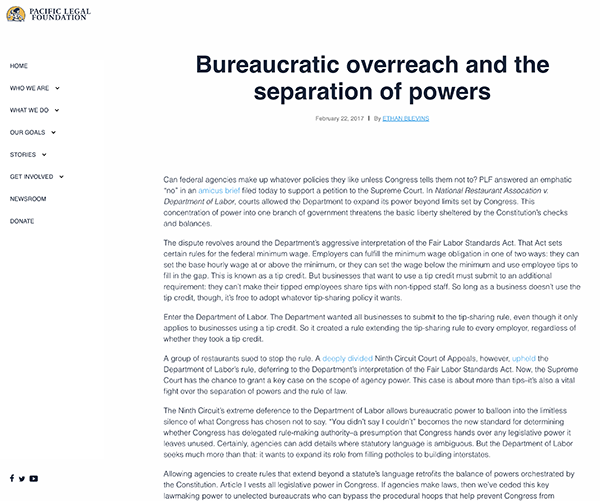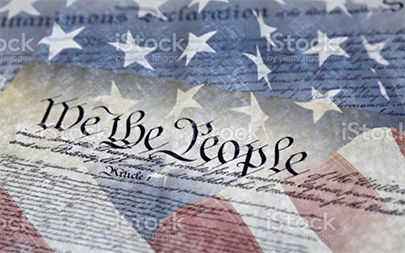
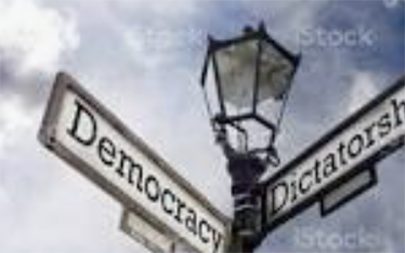
Is the US Democracy at Risk?
While closely following current developments in Ukraine, many Americans believe there are also a number of internal risks that the U.S. democracy is presently facing. Some believe they led to frustrations that contributed to the Capitol events of January 6. For purposes of examination and structuring our discussion, our Team has identified four “umbrellas” or categories of such risks, in red below. There are undoubtedly others, and we will be open to additions to these umbrellas as well.
These days, it’s hard to pick up a newspaper, watch television, or even participate in social media without seeing reporting and references to such risks. So we all have learned about them and formed opinions. But if you wish to further enrich your experience with this subject a bit more, our Team has assembled some readings and videos that you may find useful.


May we suggest
Begin with a quick browse through the general risk references, then take five minutes or so to read through the four ‘umbrellas’ below. With a précis overall in hand, return to the resources linked throughout and click / tap links that to you look most useful.
Navigating the boxes of references down the page:
This little one minute video gives some tips for using and getting the most out of the four boxes down the page. But check, FIRST, a minute here, if how to ‘escape full screen,’ get back to our page, et al., is useful. For the best experience, clickGeneral risk to our democracy
What is the national discourse, on risk generally, to US democracy? Here find a couple dozen recent commentaries.
Enjoy, if you can!
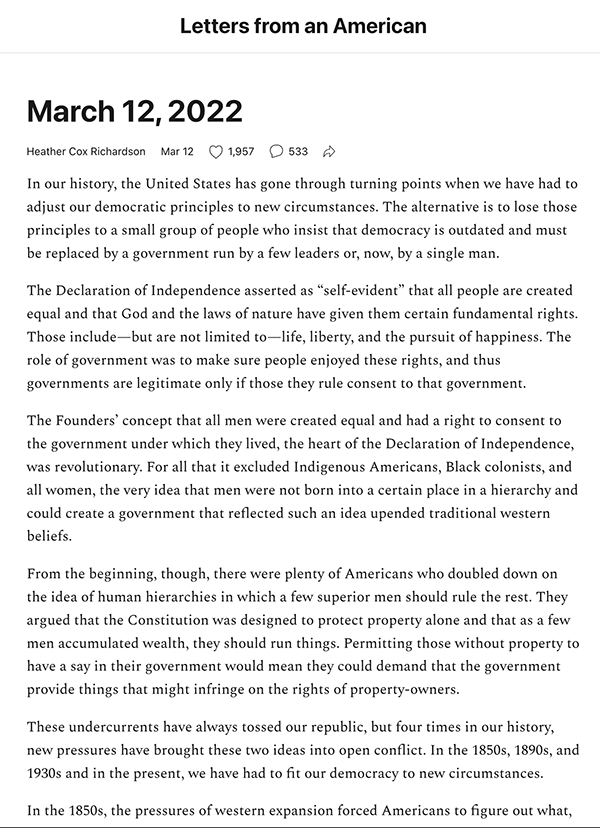
1. Speech in our democracy
Our Constitution provides for freedom of speech in its First Amendment. But over the years, the Supreme Court has set some limits on this freedom such as the most well-known proscribing “falsely shouting FIRE in a [crowded] theatre” (Justice Oliver Wendell Holmes, 1919). Which leads to the question, where is the line drawn?
In recent years what has been characterized as “improper” speech is thought to have improperly influenced voters in a “wrong” direction that could lead to the election of politicians who might undermine the application of the Constitution and possibly lead, in the worst case, to an autocracy. The “improperism” of such speech may include falsehoods, lies, or perhaps speech that induces violence. And over the years, communications have gained burgeoning power and leverage, as they progressed from soap boxes in town squares, to telephones, to radio, television and, most recently, to the Internet and social networks. The impact of political speech has thus been greatly amplified.
But who or what should control such speech, if at all?
Should the government, or should someone like the unelected CEO of a social network company, have the right to shut down speech that he or his staff deemed to be improper?
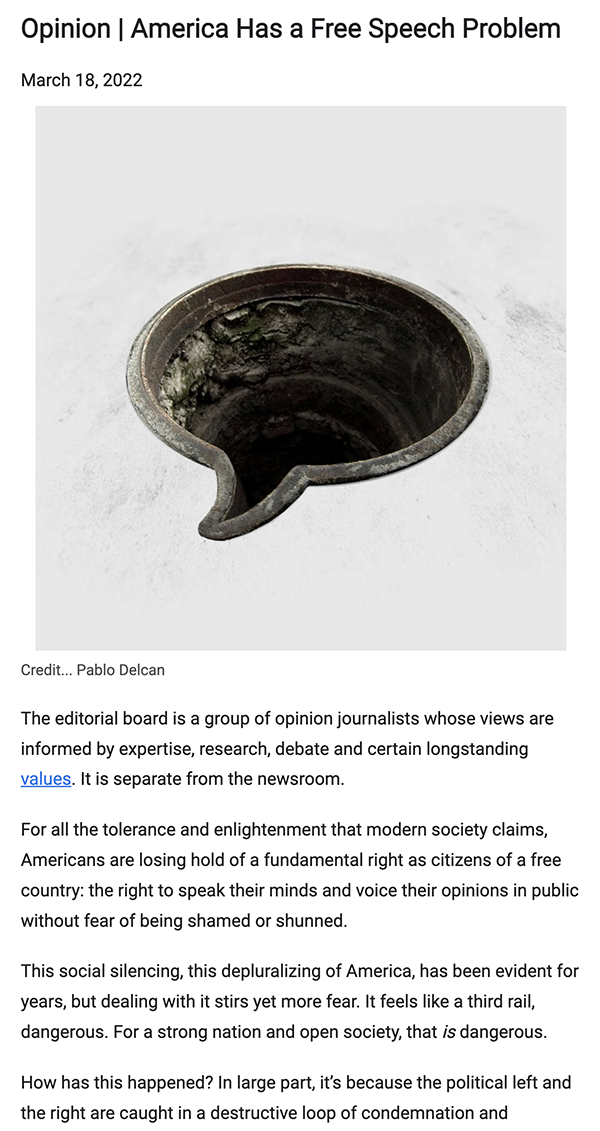
2. The money effect
Over the years, more and more money has been applied to influence the election of politicians and, once they are elected, the formation of laws they vote for. A Nobel laureate says it most directly. See for instance Billionaires Make Sure Their Money Talks. The money goes to finance advertising on communication channels and, especially, to lobbyists. After 2010, this became a gusher with the Supreme Court “Citizens United” decision, which afforded corporations the ‘right to free speech' and unlimited use of funds that could be used for political purposes. In the 2020 election, that amounted to $14.4 billion.
Though set against the current unspeakable perfidy of the Ukraine invasion, Jonathan Pie, below, in under seven, slightly salty minutes, captures a timeless verity (hold on for it, 4:54 in the recording) of money perverting politics.
The mute loop below is prologue to Pie's video sketch. To play the sketch, click / tap below; the live video will open in a new tab. Be sure there to click / tap the big play button you find. Do also enable closed captioning via a CC icon lower right, for the finer points in the vernacular.
3. Electoral problems
Following the presidential elections in 2020, some citizens believe that the mechanisms for electing the President have shown weaknesses. Do you agree? If so, what are the weaknesses and what should be done to correct them?
The Constitution provides that states control how voting takes place. Many states have recently passed laws restricting the timing of voting, procedures that must be followed by voters in order to cast their votes, etc. Some believe that many such laws have the effect of suppressing votes by Black and other minorities and that these state laws are often designed to favor one political party over the other. Do you agree? If so, should Congress pass laws that override the states? Should the Senate void the filibuster if necessary for this purpose?
Gerrymandering is another electoral problem. Here an hour video with thorough detail. (From Reform Elections Now, the HBS club of New York. To START FROM THE BEGINNING, DRAG the scrubber in the timeline full left.)
What, if anything, should be done to limit gerrymandering?
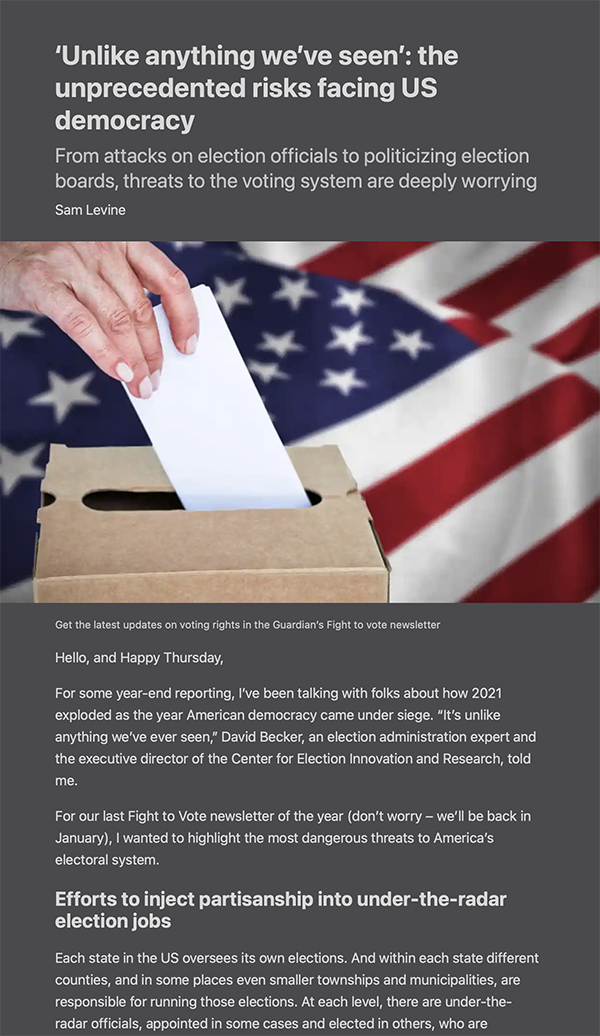
4. Weaknesses in our democratic structures
A large group of U.S. voters believes that deference should be shown to the initiatives and actions of elected officials. They think that too often these initiatives are thwarted by unelected civil servants, generals and judges who believe their personal values are superior to those of the elected officials involved, and that it is right for them at times to do whatever they can to de-rail those projects of the elected officials with which they strongly disagree. Examples cited by this group of voters include law-breaking leaks of Presidential telephone calls with foreign leaders; the Chairman of the Joint Chiefs’ unauthorized discussions with Russian generals early in 2021; and, in the judiciary, the numerous delays ordered in relation to travel bans – bans that were later upheld by the Supreme Court.
Another large group of voters recognizes this tension between a professional civil service and the elected representatives of the people, but they see it as means collectively to operationalize representative self-governance. They do not see a ‘deep state,’ and they recognize the importance of attracting the best talent into long-term, permanent government service, so as to achieve continuity across administrations. For the structure and functioning of a vibrant democracy, the concerns of this large group of voters rather ranges across: (1) A judicial system intended to be the utter neutral arbiter, but which instead increasingly divides between sometimes-extreme political poles, thus negating serious prospects for neutral decisions; (2) a presidential election system that has seen two recent presidents elevated to the post without a popular majority; and (3) a senatorial election construct that gives, for example, a voter in Wyoming 68 times more power compared to a neighbor in California.
Where should be our concerns: Elected officials being limited in carrying out their voter-won mandates due to obstruction by unelected civil servants, generals and judges? Or structural arrangements in our government that threaten the underpinnings of self-governance?
